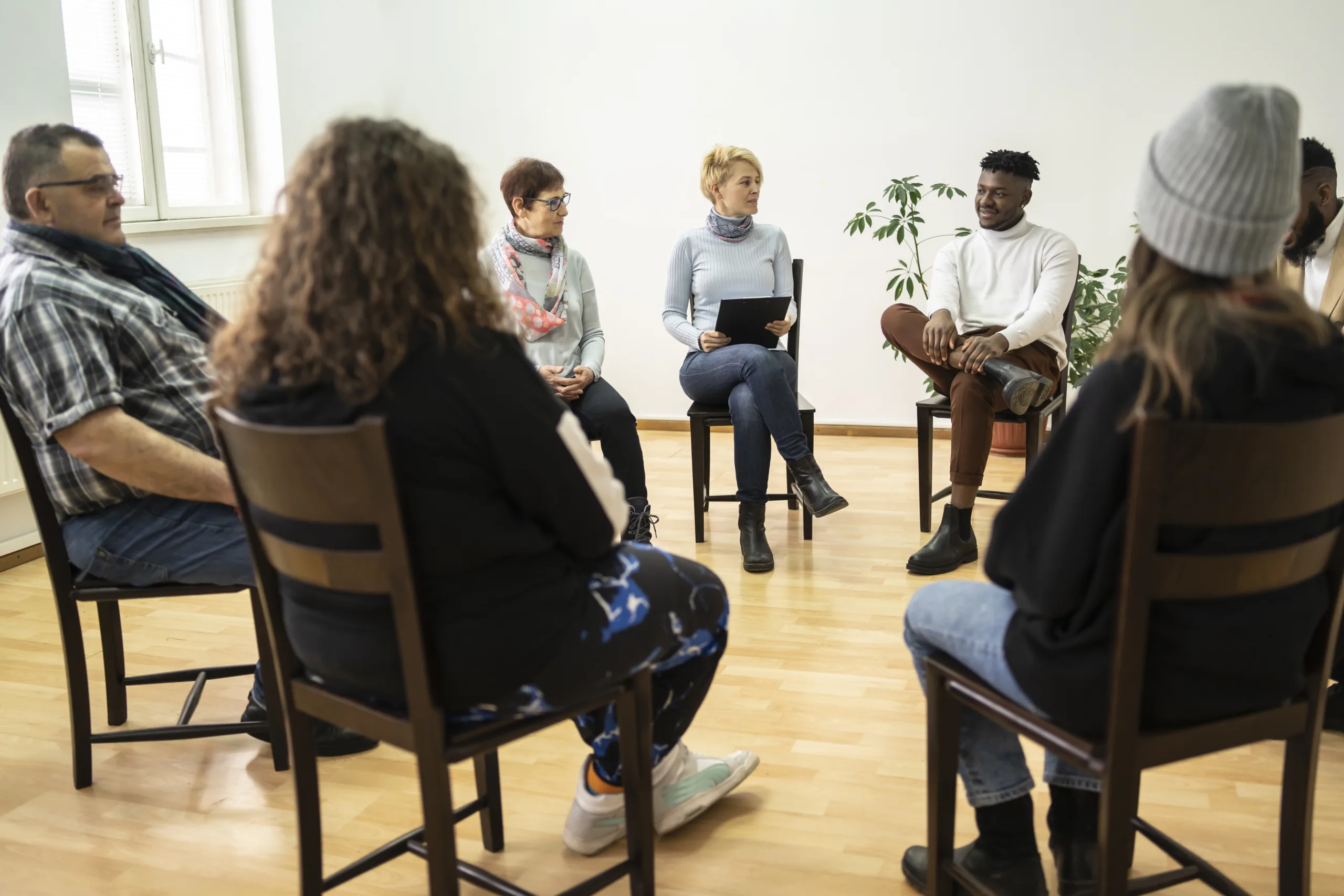24/7 Helpline:
(866) 899-111424/7 Helpline:
(866) 899-1114
Learn more about Group Therapy centers in Sudan
Group Therapy in Other Cities

Other Insurance Options

Oxford

ComPsych
Beacon

BHS | Behavioral Health Systems

Magellan

Excellus

Molina Healthcare

CareSource

Covered California

Access to Recovery (ATR) Voucher

Optum

Evernorth

Optima

WellPoint

Lucent

Meritain

State Farm

Medical Mutual of Ohio

BlueCross

BlueShield



































































































